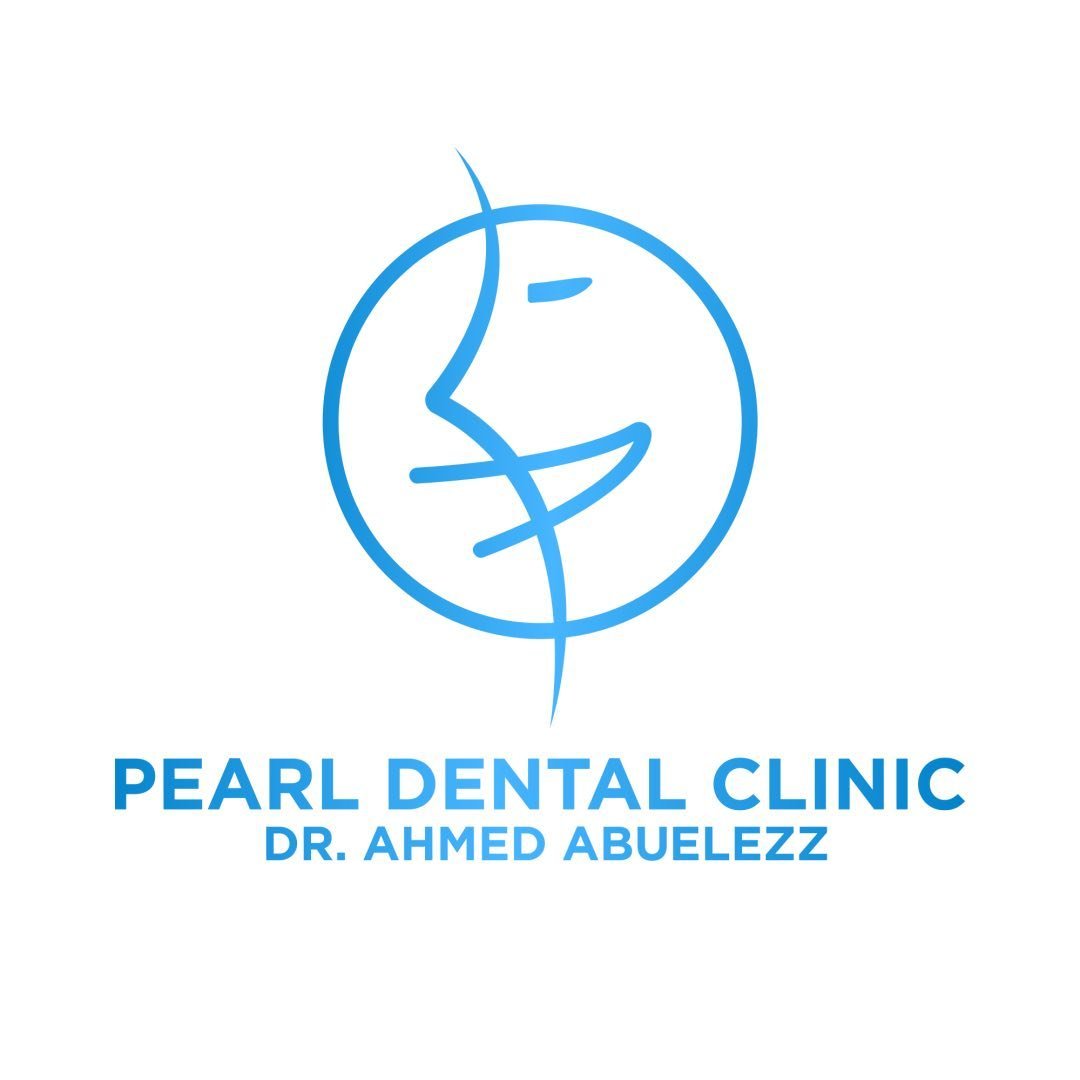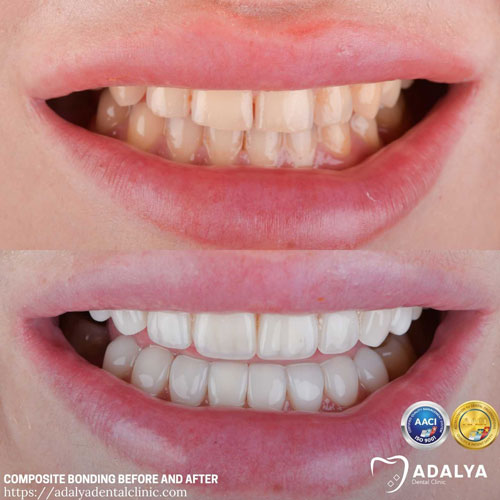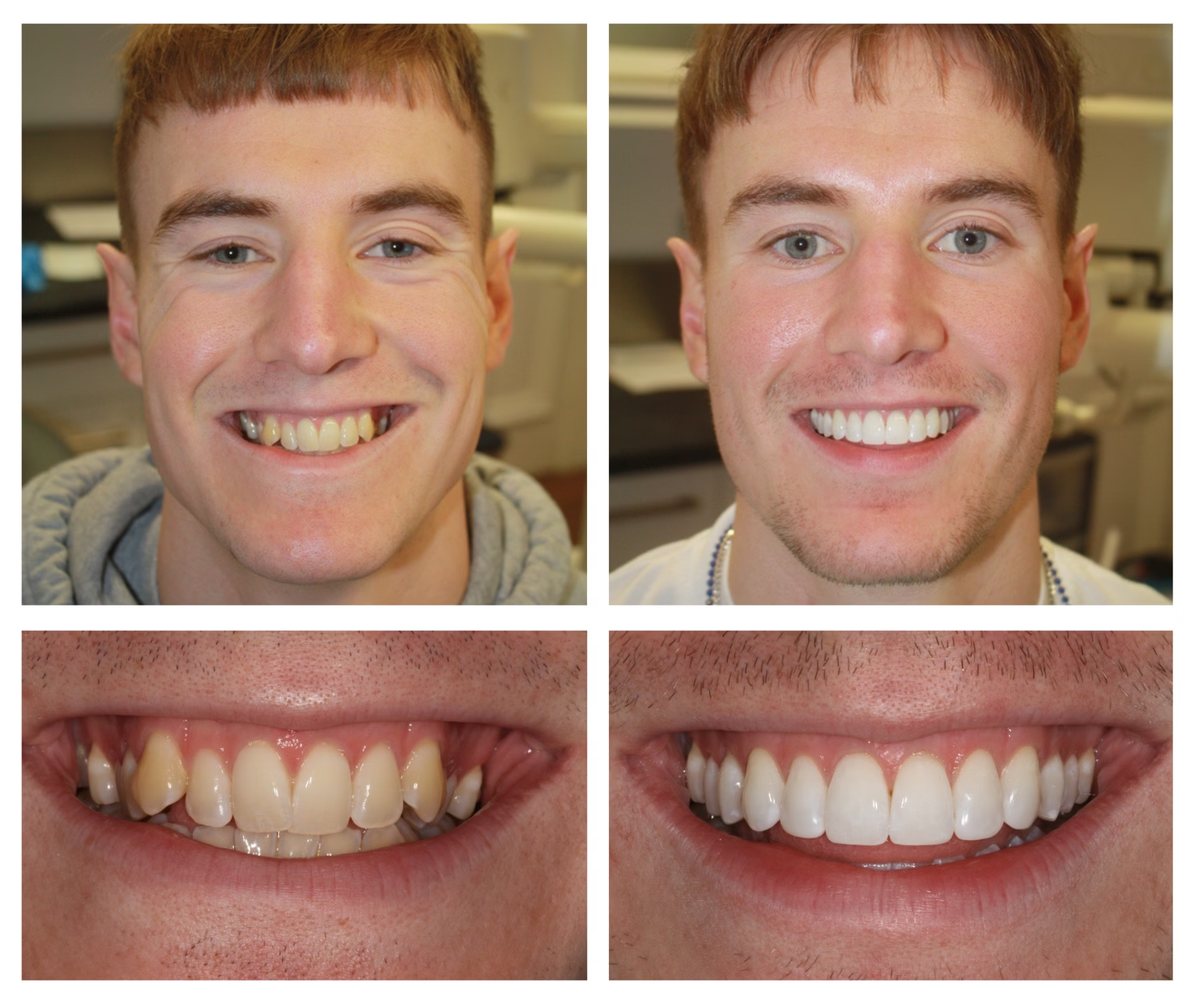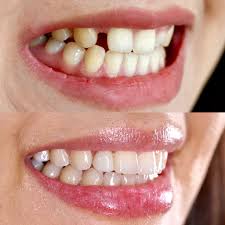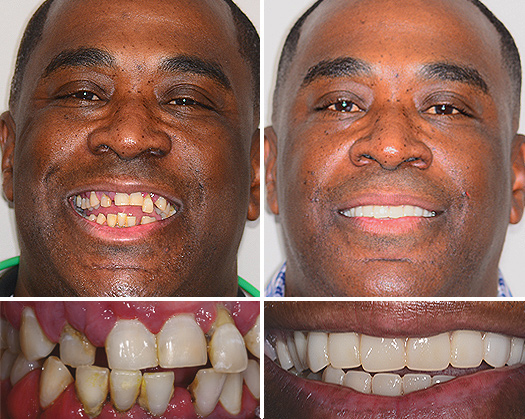Dental implants are advanced, screw-like posts, typically made of biocompatible titanium, that serve as artificial tooth roots. They are surgically placed into the jawbone to provide a strong and permanent foundation for replacement teeth, such as crowns, bridges, or dentures. This ensures a durable, long-lasting, and natural-feeling solution for one or more missing teeth.
Procedure Step-by-Step:- Consultation & Planning: The process begins with a comprehensive dental examination, including 3D CBCT scans and X-rays, to assess jawbone health and create a precise surgical plan.
- Implant Placement: Under local anesthesia, a small incision is made in the gum, and the titanium implant is gently placed into the jawbone. The site is then closed with sutures.
- Osseointegration (Healing): Over the next 3 to 6 months, the jawbone naturally grows around and fuses with the implant, creating a solid and stable base. A temporary tooth may be worn during this time.
- Abutment Placement: Once healing is complete, a small connector piece called an abutment is attached to the implant, which will hold the final replacement tooth.
- Crown Attachment: A custom-made crown, designed to match the color and shape of your natural teeth, is securely attached to the abutment, completing the restoration.
Benefits:- Permanent Solution: Designed to be a long-term, often lifelong, solution for missing teeth.
- Preserves Jawbone: Stimulate the jawbone, preventing the bone loss and facial sagging that occurs with missing teeth.
- Restored Function: Allow you to eat, speak, and chew with the same confidence and power as natural teeth.
- Natural Appearance: Look and feel indistinguishable from your own teeth.
- No Damage to Adjacent Teeth: Unlike bridges, implants do not require altering or grinding down neighboring healthy teeth.
Recovery Time:- Initial recovery after the placement surgery typically takes 1-2 weeks for swelling and tenderness to subside.
- Full healing and bone fusion (osseointegration) require between 3 to 6 months. Most patients can resume normal daily activities within a day or two of the procedure.
Aftercare:- Short-Term: Following surgery, stick to a soft food diet, avoid smoking, and follow your surgeon's instructions for cleaning the area. Use prescribed pain relievers and antibiotics as directed.
- Long-Term: Care for dental implants just as you would for natural teeth. Maintain excellent oral hygiene with daily brushing, flossing (often with a water flosser), and attend regular dental check-ups and cleanings.
Symptoms Indicating a Need for Implants:- Having one or more missing teeth.
- Wearing loose or uncomfortable dentures or partials.
- Experiencing difficulty chewing or speaking due to gaps.
- Noticing a change in facial structure due to bone loss.
- Having a severely damaged or decayed tooth that requires extraction.
Common Causes of Tooth Loss:- Severe tooth decay (cavities).
- Advanced gum disease (periodontitis).
- Physical trauma or injury to the mouth.
- Failed root canal procedures.
- Congenital conditions where teeth are naturally missing.
Diagnosis: A definitive diagnosis is made through a clinical examination and advanced dental imaging. A 3D Cone Beam CT (CBCT) scan is the gold standard, allowing the surgeon to precisely measure the density and volume of your jawbone. This scan is crucial for determining your candidacy, planning the exact placement of the implants, and identifying if a preliminary procedure like a bone graft or sinus lift is necessary.Treatment: If the diagnosis confirms you are a suitable candidate with adequate jawbone, the treatment is the multi-stage implant procedure. If bone volume is insufficient, the treatment plan will be expanded to first include a bone grafting or sinus lift procedure to create a solid foundation for the future implants.
- Who are good candidates for implants? Individuals in good general health, with healthy gums and sufficient jawbone to support the implant, are ideal candidates. Non-smokers tend to have higher success rates.
- What materials are used? The vast majority of dental implants are made from medical-grade titanium, which is exceptionally strong and biocompatible, meaning the body does not reject it. The final crowns are typically made from high-quality materials like Zirconia or E-MAX porcelain.
- Why Choose Cross Medical for Dental Implants in Egypt? You gain access to globally recognized implant brands (e.g., Straumann, Nobel Biocare) and highly experienced oral surgeons using the latest 3D planning technology. This ensures a world-class standard of care at a significantly more accessible price points. All without compromising on quality or safety.
